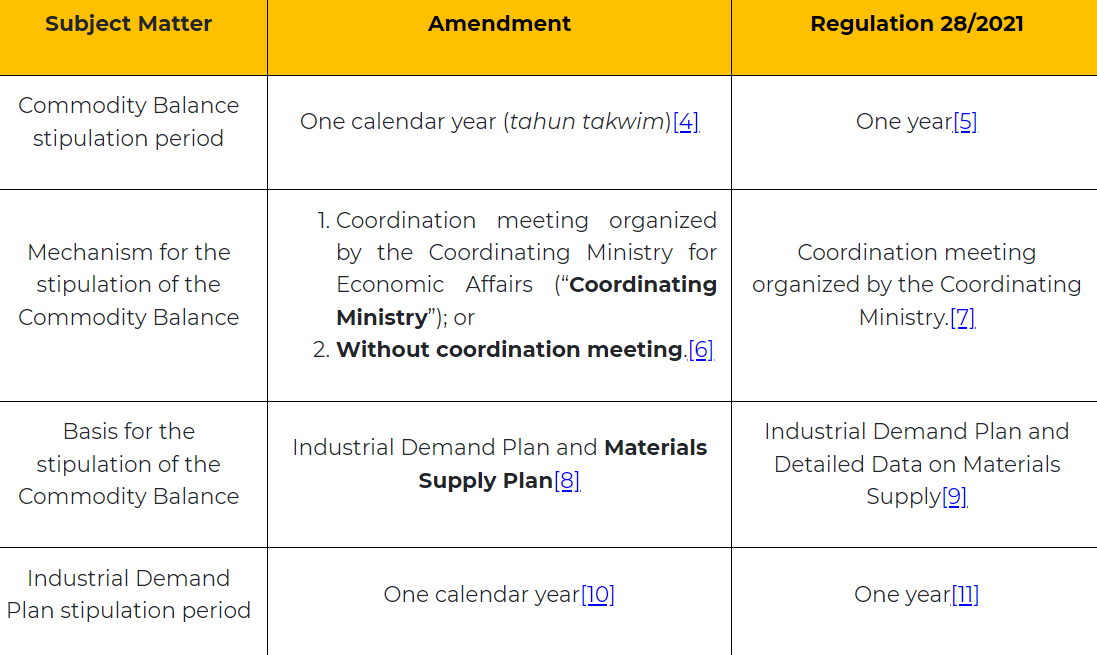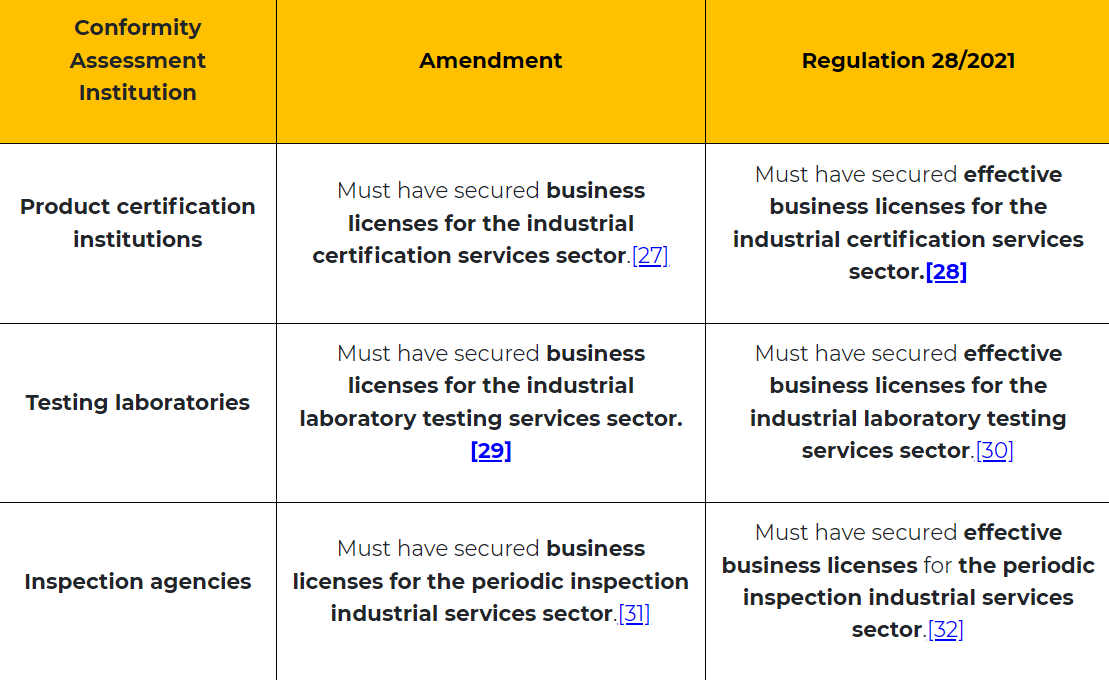
Various facilities for the importation of raw materials and/or supplementary materials (collectively referred to as “Materials”) are now available to business entities that have secured business identification numbers (nomor induk berusaha – “NIB”) that effectively function as Producer Importer Identification Numbers (Angka Pengenal Importir – Produsen – “API-P”). Said facilities have been introduced in order to ensure that imported Materials will not be sold or transferred to any other parties, activities that may ultimately lead to national economic disruption. In terms of economic development, the importation of Materials may not only be carried out by business entities whose NIB effectively function as API-P (“API-P Holders”) but can also be performed by business entities that utilize their NIB as General Importer Identification Numbers (Angka Pengenal Importir – Umum – “API-U”).[1]
Against this backdrop, the government is now aiming to provide further ease of importation for business entities that utilize their NIB as API-U (“API-U Holders”) while ensuring the availability of Materials for domestic industry in order to prevent any national economic disruption. With this objective in mind, the government has issued Regulation of the Government No. 46 of 2023 (“Amendment”) as an amendment to Regulation of the Government No. 28 of 2021 on the Organization of the Industrial Sector (“Regulation 28/2021”).[2]
This edition of Indonesian Legal Brief (ILB) highlights certain adjustments that have now been introduced under the Amendment and that relate to the following matters:
The Commodity Balance and Materials Supply Plan
Indonesia’s Commodity Balance is stipulated by the government in order to ensure the availability of Materials for industrial purposes. It encompasses detailed and accurate data on domestic supply and demand in relation to Materials, including data on types, volumes, utilization periods and quality standards for Materials.[3]
The Amendment sets out several points of adjustment that relate to the stipulation of the Commodity Balance as well as Industrial Demand Plans, as summarized in the table below:

In addition to the various adjustments outlined above, it is important to highlight the fact that the Amendment has also made a number of adjustments to the framework for Materials Demand Proposals. In this regard, the Amendment now allows for Material Demand Proposals to be submitted by business actors.[12] Said submissions were previously limited to industrial companies and Materials suppliers only.[13]
Furthermore, it should also be noted that the Commodity Balance will now be stipulated based on Materials Supply Plans instead of Detailed Data on Materials Supply. The table below sets out a comparison between the two bases for the stipulation of the Commodity Balance:

While previously the Industrial Demand Plans and Detailed Data on Materials Supply were required to be updated on a quarterly basis,[18] it is important to note that the Amendment no longer requires said quarterly updates and now only requires submissions to be made to the Coordinating Ministry via an integrated electronic information system.[19]
Imports of Materials
As previously established, the objective of the Amendment is to make the importation of Materials easier for API-U Holders. In this regard, the Amendment states that imports of Materials may be carried out by API-U Holders, in addition to being carried out by API-P Holders.[20] However, it should be noted that API-U holders are still limited in terms of imports of certain Materials, as specifically addressed under relevant laws and regulations.[21]
Previously, Regulation 28/2021 conditionally allowed API-U Holders to import Materials for small- and medium-scale industries provided that said parties were able to present order contracts from the relevant small- and medium-scale industries.[22] This requirement has now been removed under the Amendment, which now allows Materials suppliers that have secured API-U to import Materials for small- and medium-scale industries in cases where said industries have been unable to independently complete their imports.[23]
Furthermore, the Amendment now allows industrial companies to import products for complementary purposes, market testing or after-sales services with the objective of enhancing investment.[24] This new initiative did not previously feature under the framework of Regulation 28/2021.
Industrial Standards Adjustments
Assessments of mandatory conformity with the National Indonesian Standard (Standar Nasional Indonesia – “SNI”), technical specifications and/or procedural guidelines, as set under applicable laws and regulations, should be carried out by accredited conformity assessment institutions, as appointed by the Minister.[25] Said institutions may take the form of product certification institutions, testing laboratories and inspection agencies.[26]
While no adjustments have been introduced in terms of the above-described provision, it should be noted that the Amendment has made several minor adjustments to the criteria that apply to each type of conformity assessment institution outlined above, specifically in terms of business licensing requirements, as summarized in the table below:

It should also be noted that the Amendment has also adjusted the types of applicable Materials, as set out under the Appendix to the Amendment.
Source : hukumonline.com



National Economy
Regional Economy
National Economy
Regional Economy